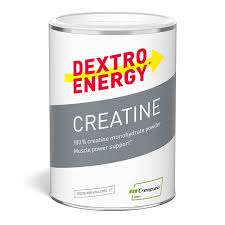
Introduction to Creatine
Creatine, a naturally occurring compound found in small amounts in certain foods and synthesized by the body, has gained immense popularity among athletes and fitness enthusiasts. As an essential component in the production of adenosine triphosphate (ATP), the body’s primary energy carrier, creatine plays a crucial role in fueling high-intensity exercise and improving overall athletic performance.
Recent Findings and Benefits of Creatine
Recent studies continue to support the performance-enhancing benefits of creatine supplementation. Research published in the Journal of Sports Medicine shows that creatine can enhance muscular strength, power, and recovery. When combined with resistance training, individuals using creatine supplementation typically experience greater gains in muscle mass compared to those not using it.
Moreover, creatine is not only beneficial for power athletes; endurance athletes can also reap advantages from its use. It can help improve recovery and decrease muscle soreness after prolonged exercise. Some studies suggest that creatine may assist in neurological health, potentially reducing the risk of neurodegenerative diseases.
Addressing Misconceptions
Despite its popularity, misconceptions about creatine persist. One common myth is that creatine is a steroid, but this is false. Creatine is a legal dietary supplement and has been extensively researched for safety when used at recommended dosages. Another concern is the potential for water retention; while it is true that some users may experience this, it usually indicates an increase in muscle hydration rather than fat gain.
How to Use Creatine
For those considering adding creatine to their routine, it’s generally recommended to follow a loading phase, consuming around 20 grams per day for 5-7 days, followed by a maintenance dose of 3-5 grams daily. It’s essential to drink sufficient water to stay hydrated and support kidney function while using creatine supplementation.
Conclusion: The Role of Creatine in Modern Fitness
As research continues to unveil the benefits of creatine for both performance enhancement and overall health, its relevance in the fitness community is more apparent than ever. Whether you are a competitive athlete or a casual gym-goer, understanding how to utilize creatine can lead to more effective training and improved outcomes. It’s crucial for individuals to consider their specific fitness goals and consult a health professional before starting any new supplement regimen. In summary, creatine remains one of the most well-supported supplements available in sports nutrition, offering a wide range of benefits for its users.



